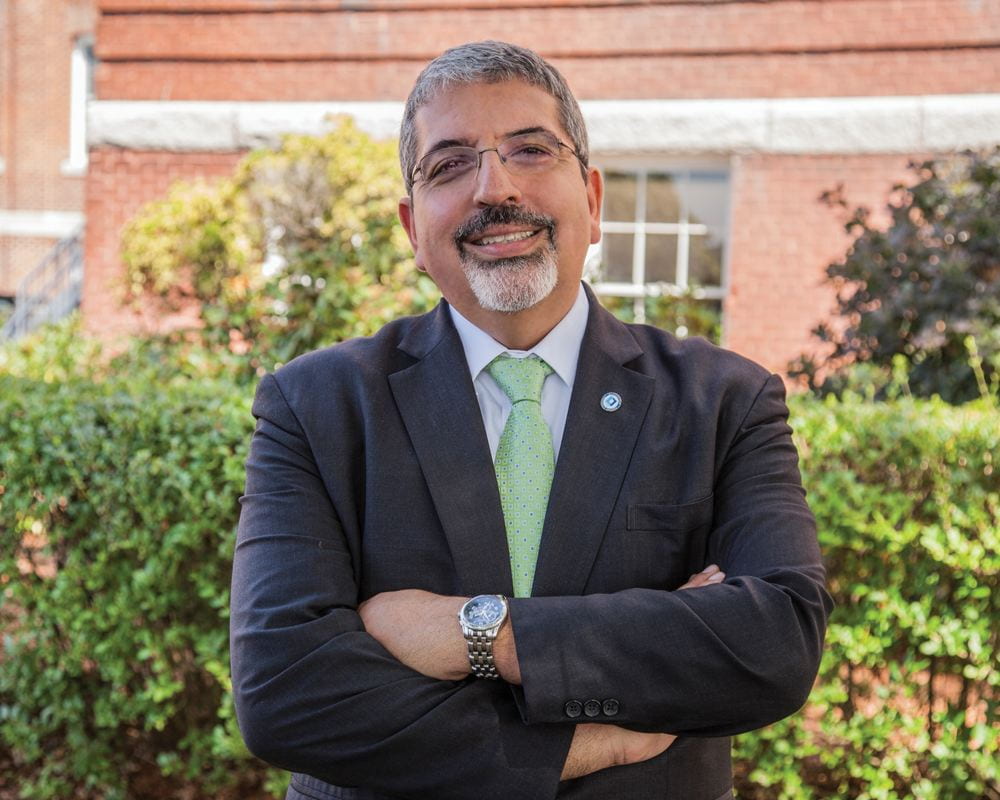Dr. Luis Pedraja, president of Quinsigamond Community College (QCC) in Worcester, Massachusetts, will deliver the 2020 Barton Lecture, “Living in the Margins: Theology and Education in the New Decade,” presented virtually on Monday, September 21 at 7 p.m. To learn more about the lecture and register, visit the website by clicking here.
The Roy D. Barton Lectureship was established in 1995 to honor Dr. Barton for his distinguished service to the seminary and to the Hispanic United Methodist Church. The purpose of the Barton Lecture is to disseminate knowledge of Hispanic/Latin@ theology and ministry for the benefit of the academy, the church, and the wider public.
With more than 20 years of higher education experience as an administrator and professor, Dr. Pedraja is an advocate for increased access for groups historically underrepresented in the higher education system. In advance of the lecture, Dr. Pedraja spoke to Perkins Perspective writer Mary Jacobs; here are excerpts.
In advance of the lecture, Dr. Pedraja spoke to Perkins Perspective writer Mary Jacobs; here are excerpts.
You accepted the invitation to lecture about a year ago. Are you revising in light of the COVID-19 pandemic?
Yes. As I see it, we have multiple pandemics. One is the COVID-19 virus that it is affecting people across all the sectors. That pandemic raises theological questions, equity questions, educational questions, and COVID is forcing us to confront those.
At the same time, we also have the whole pandemic that has been in existence far longer — of racism, particularly systemic racism. This is so embedded in our society and has lasted for centuries and has once more become critical. That affects the church, the academy and education, as well as other aspects of society. And it’s definitely an equity issue. I would also add a third pandemic — the economic gaps that exist.
Originally, I had planned to talk more about some of the disconnects that exist between the church and theological education, the role of education in general and how the equity gaps play a role. That’s still a topic of the lecture, but it’s become more urgent in light of the pandemic.
Talk about that disconnect.
[The early church theologian] Tertullian asked that famous question: “What does Athens have to do with Jerusalem?” There’s a disconnect between the academy and the church that has been aggravated in the recent decades. Theological education has lost some of its relevance to the church and to the faith of the people. And in turn the faith of people has lost the vibrancy of theological engagement. That’s a detriment to both.
In the academy, theologians and religious scholars tend to talk more to themselves. It’s become an academic enterprise that has lost its practical application to the life of the church and the life of the people of faith. In the church and society at large, faith and religion have devolved, with the growth of science, the availability of media, the availability of information. We’ve been exposed to more religious thoughts as well as philosophy and ethical ideals. Our society has become more secular to some degree, but also, civil religion has usurped the place of denominations.
What do you mean by civil religion?
Especially among radical conservatives, we see those who associate Christianity with patriotism and ideas of freedom, some that go counter with the basic tenets of Christianity — where the flag has become as significant as the cross. That’s also aggravated the divide in equity, especially where we’ve become more associated with our own identities and our positions to others that we see as threats.
When you have an embedded civil religion that basically has a knee jerk reaction to social concerns, we lose the foundation of what the essence of Christianity is. It’s the faith of a Jewish carpenter who believed that we all are children of God, that we all were created in God’s image and equal, that the poor are blessed, that the lowest will be the ones that should be brought up, and that we should live a life of compassion and forgiveness. It’s a faith that says God is not like a ruling monarch or king of power. It’s a God that manifests itself in humility, and that manifests itself as loving, forgiving, and seeking reconciliation rather than alienation and punishment.
